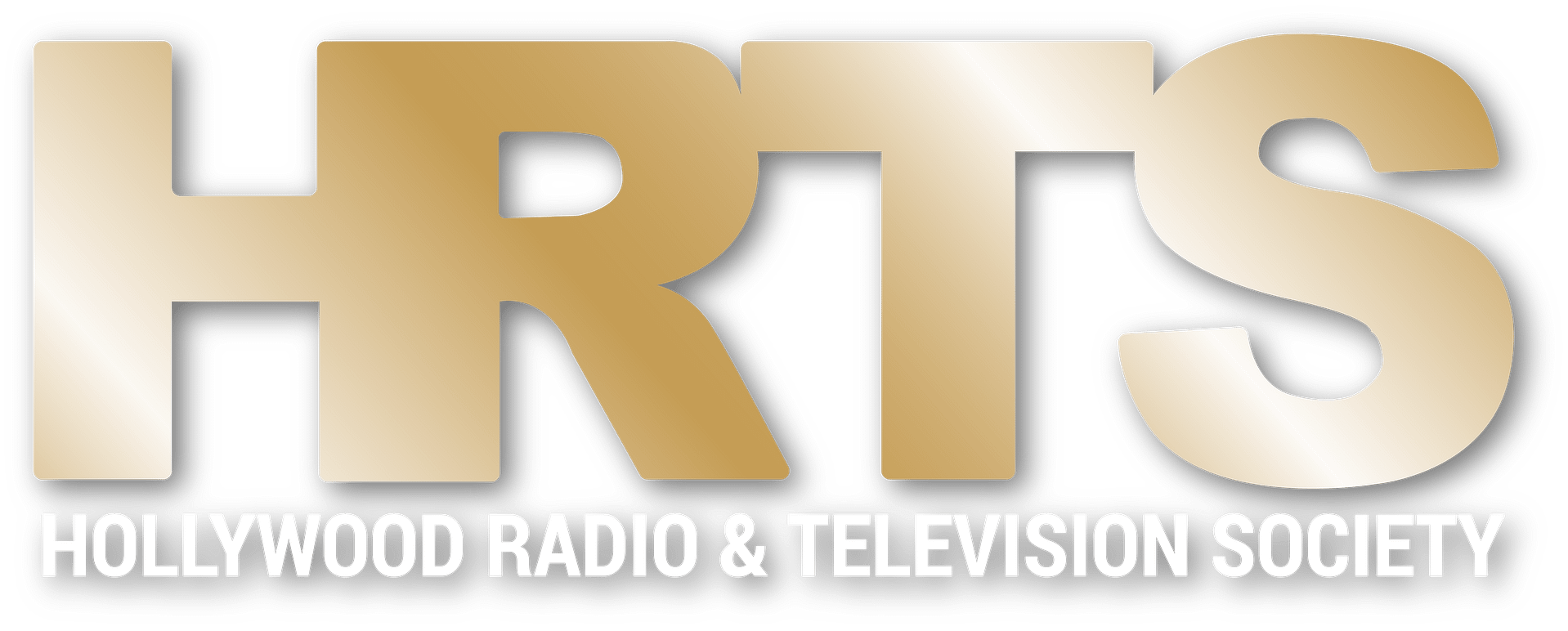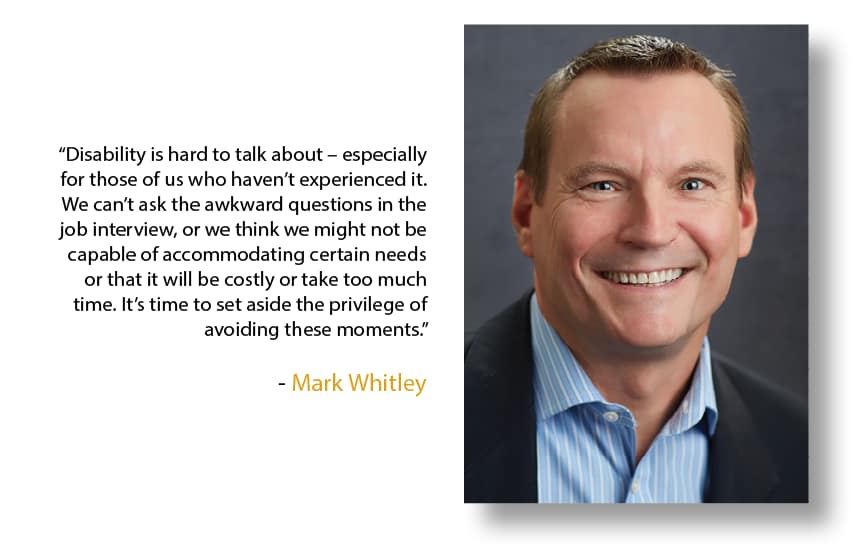Disability is the “D” in “Diversity”
By Mark Whitley, CEO of Easterseals Southern California
Earlier this year, Fast Company published an article with a game-changing headline: “Why Companies Who Hire People with Disabilities Outperformed their Peers.” Disability inclusion is an issue we’ve faced for decades, and one that has started to bring about the results I’ve spent my career working toward.
It has been 40 years since actor Geri Jewell starred in Norman Lear’s groundbreaking sitcom “The Facts of Life,” as the first person with a disability to have a recurring role on network television. At the 2019 Easterseals Disability Film Challenge, in front of a theater full of aspiring filmmakers and actors with disabilities, Geri gave a heartfelt speech, saying she was grateful to no longer be the lone star representing people with disabilities on television. I, too, am grateful to have witnessed the progress that followed her success, but frankly, it has not been nearly enough after all this time.
There is progress we can point to in the past couple years. There were a few more recurring and leading roles, not only about people with disabilities, but played by people with disabilities in the 2018-2019 TV line-up. Geri’s recurring role on HBO’s Deadwood, Netflix’s Special, ABC’s Speechless, and characters like Daryl Mitchell’s role on CBS’s NCIS: New Orleans, are lead examples.
But this momentum is slow-moving, and in reality, the disability community remains virtually invisible. We need more programs featuring disability, with actors in front of the camera, writers with disabilities telling stories, disabled directors leading the crew. Let’s make progress at a quicker pace.
It starts in the writer’s room. When you hire a writer with a disability, you give the work you produce endless opportunity to uncover nuances that a non-inclusive writing staff would not otherwise provide. This goes for any drama, comedy, thriller, or romance – whether or not the principle characters have a disability. One in four adults in America is living with a disability, yet too many still face stigma, misperceptions, and discrimination. That’s why I’ve made disability inclusion central to my career, and why Easterseals is committed to change the way the world defines and views disabilities.
We know that this is the right thing to do, but I’d also like to make an economic argument. The statistics say it all, and executives and producers should understand it is beneficial from a business perspective to hire employees with disabilities in Film & TV. Fast Company reports that companies offering “the most inclusive working environment for disabled employees achieve an average of 28% higher revenue, 30% greater economic profit margins, and twice the net income of their industry peers between 2015 and 2018.” It’s also estimated that the 61 million people with disabilities today have a buying power worth $22 billion.
Several global brands have tapped into that buying power, such as Target, Toyota, and Guinness. These businesses have dedicated efforts, with great results, to inclusion in their workplace. We need the entertainment industry to catch up – we know the talent and potential is there in the disability community, and we know the visibility and the power in the entertainment industry. It’s time the two joined together in consistent, purposeful collaborations.
Disability is hard to talk about – especially for those of us who haven’t experienced it. We can’t ask the awkward questions in the job interview, or we think we might not be capable of accommodating certain needs or that it will be costly or take too much time. But mostly, we’re afraid of getting it wrong. It’s time to set aside the privilege of avoiding these moments and accept the fact that we might make mistakes. Good news is there are a host of resources available to you. Easterseals is there for you. Click for more information about our Easterseals Disability Film Challenge, and the Media Access Awards. Taking the first step might be uncomfortable, but don’t be fooled – being inclusive is not difficult.
There is work to be done, and the truth is that the effort you put forward as a CEO, an executive, or anyone making hiring decisions in entertainment, is the first step towards not only diversifying your staff and providing your audiences with a more comprehensive and authentic view of the world, but truly helping your business’ performance. The research is right in front of us.
It would be easy to continue doing things the way they’ve always been done, but I have a feeling anyone reading this today would rather put in the work for a better future, rather than continue to ignore the beautiful diversity that exists in the disability community.
The stigma against people with disabilities is both perpetuated and dismantled one act at a time – hiring the writer with a disability, taking the steps to make your office accessible, being aware of your own discomfort and bias, taking a chance on stories that accurately represent our world. You have the power to shape the future of entertainment, and the ability to make it a place where everyone belongs.
Easterseals is working alongside the entertainment industry to change the way the world defines and views disability, and make meaningful, positive change in peoples’ lives. This year, on October 24, Easterseals Disability Services is joining A+E Networks as Presenting Sponsor of the 2nd Annual HRTS Spotlight Breakfast: How Inclusion, Representation and Diversity Drive Innovation (more info here). We also are the Presenting Sponsor of the inaugural HRTS Diversity and Inclusion Resource Guide (more info here).
Mark Whitley is the president and CEO of Easterseals Southern California. For 100 years, Easterseals has been a resource for individuals with developmental disabilities or other special needs and their families. The services provided by Easterseals Southern California make profound and positive differences in people’s lives every day, helping them address life’s challenges and achieve personal goals so that they can live, learn, work and play in our communities.

